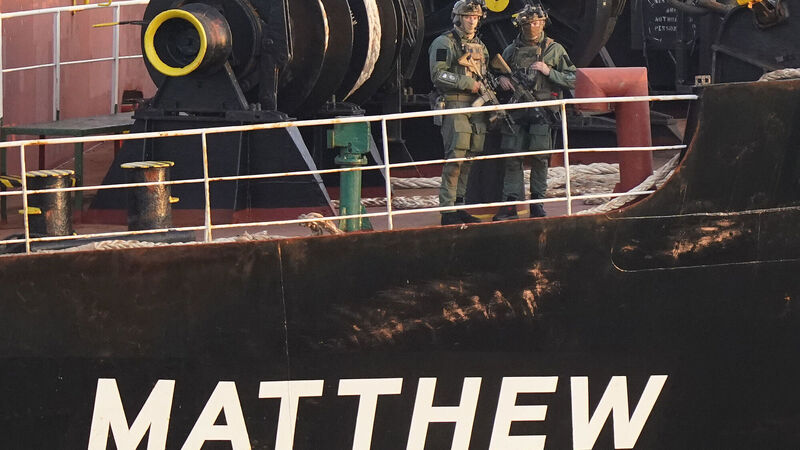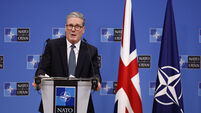'Volumes of drugs arriving in Ireland are just ridiculous’

The MV Matthew and its record 2.23 tonne haul of cocaine was seized off the south coast last September. A security source warns that despite the successes of such multi-agency operations, they are not affecting the plentiful supply of illicit drugs on the streets. Picture: Niall Carson/PA
- This article is part of our Best of 2024 collection. It was originally published in March. Find more stories like this here.
















